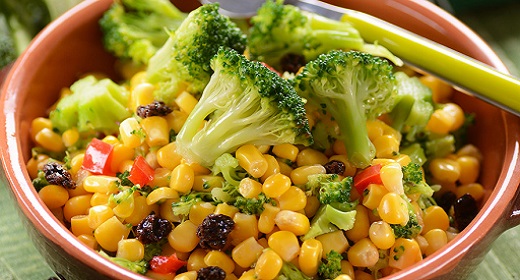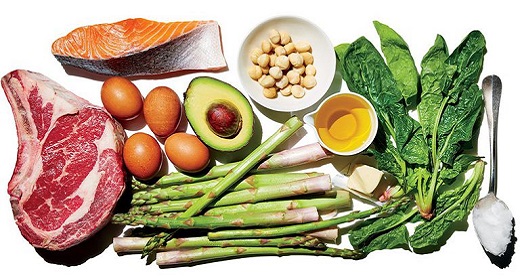Yoga doesn’t only happen on your mat; it also happens on your plate…
If you really want to go full-yogi-style, living with consciousness and awareness, then it’s time to embrace the yoga diet.
But does the yoga life mean you’ll have to give up meat and lattes? It depends. Let’s explore the controversies behind the yoga diet and how to adapt its principles to modern times.
A Word On Meat
The very first moral code of yoga is ahimsa: non-violence. Yogis strive to live in a manner that is the least harmful to themselves and all other beings. Meat consumption is considered violence against animals. This makes “true yogis” — according to the ancient Indian tradition — vegetarian. Meat is also considered tamasic: it keeps the mind at a lower level of consciousness.
So if you want to be called a yogi by the strict followers of the tradition — there’s no place for meat in your diet. However, if meat was for some reason imperative to your survival; say you’re extremely anaemic, debilitated, or live in the desert and meat’s your only food — then you’d be committing violence against yourself by abstaining.
Lessening meat consumption is a process that takes time and commitment. But as you walk on the yogic path you’ll find yourself attracted to foods that promote purity (those that are sattvic), and your desire for tamasic foods like meat will naturally decrease.
Dairy And Happy Cows
If yogis have to give up meat, does this mean they have to give up dairy products, too? The short answer is no. Milk and ghee have always been considered sattvicyogi foods. They’re not only nourishing, but they promote a peaceful mind. They don’t violate ahimsa because milk can be taken from a cow without harming it.
However, modern times demand that we buy our dairy products with care. Most cows are sadly raised inhumanely; long gone are the days of green open pastures. Taking dairy from these poorly treated cows goes against ahimsa. So if you do choose to consume dairy, buy it from local, organic farms with happy cows.
Garlic And Onions
The strictest of yogis abstain from garlic and onions. This might seem a little extreme, but they’re believed to make the mind rajasic: agitated and overactive. When meditation is such a big part of your life, an agitated mind will simply not do!
It’s extremely difficult to do away with garlic and onions nowadays, especially when eating in restaurants. You can make your life complicated by asking every waiter what doesn’t have garlic or onions; or just leave them out when you’re cooking at home to follow this yoga diet principle.
The Buzz On Coffee
Yogis don’t have to rely on caffeine. They generate so much prana (life-force) through their practice that they have more than enough energy! But coffee and caffeinated tea aren’t part of the yoga diet anyway. They’re considered rajasicbecause they make the mind edgy and overactive.
Coffee drinkers hate to hear this one. Coffee just tastes so good and gives a fun, little buzz! But this kind of sensory addiction is motivation alone to either quit coffee or cut back on caffeine consumption. Yogis strive to control their senses so that they’re not slaves to their sensory desires.
Notice when your tastebuds are driving your decisions. As you strengthen your will power through yogic practices, you might be surprised to find that coffee becomes easy to turn down.
Alcohol And Getting Tipsy
Is a yogi who drinks alcohol a total fraud? No. But alcohol certainly doesn’t promote a sattvic mind.
Alcohol is a tricky yogi dilemma. On the one hand, drinking is a normal part of Western social life. On the other hand, alcohol is harmful to the body and keeps us on a lower level of consciousness. So how can you be a yogi that still functions in social settings?
You have a few options. One is to ditch alcohol. If this makes you feel awkward at parties or in bars, have the bartender pour you a deceptively alcoholic-looking sparkling soda. No one will know you’re keeping it sober. Alternatively, limit your alcohol intake to one or two drinks only. Like everything else discussed here, as you progress in yoga you’ll probably find that your desire for alcohol will fade away.
Detoxes, Juicing, And Fasting
Fasting is part of the traditional yoga diet. It’s been used to reset the digestive system and teach self-discipline. But all the overdone fasting that’s common today isn’t very yogic. Frequent juicing and detoxes are just too extreme and go against ahimsa, or non-violence to the self.
According to ayurveda, yoga’s sister-science that focuses primarily on the health of the physical body, too much fasting is a cause of disease. One day fasts are more than enough and even too much for certain body types.
Rather than undergoing 5-day juice fast, for example, aim to eat wholesome food every day so that you don’t feel the need to detox. This is a much more yogic way to approach food.
Yes, the yoga diet comes with a lot of regulations. But it’s not meant to take away the fun in food — it’s meant to help us in our spiritual evolution. How far you’ll take it is up to you. As you progress on the yoga path you’ll find it easy to do away with certain foods and drinks that don’t uplift the spirit and mind.






















































